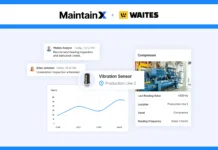
- This gap is attributed to carbon-reduction targets set by top Western food and beverage companies falling short of the industry-wide global target established by the 2015 Paris Agreement and Science Based Target initiative, and to a lack of confidence amongst industry executives in meeting those company targets.
- The research reveals that the key to making progress with carbon reduction may be greater cross-industry collaboration. Fewer than 30% of sustainability executives from food and drink suppliers, manufacturers and retailers are confident they will meet their carbon reduction goals that relate to emissions from other companies in their value chains.
NEW YORK and LONDON (June 21, 2022) – AlixPartners, the global consulting firm, is today publishing new research, which reveals that the largest (by revenue) Western food and beverage companies, spanning manufacturers, suppliers and retailers, are set to fall more than one third (34%) short of the 2030 global carbon-reduction goal of 38%[1] for the industry, as set out in the United Nations’ 2015 Paris Agreement and by the Science Based Target initiative.
The AlixPartners research, titled Net Zero: Syncing ambition with outcomes across the consumer packaged goods value chain, analyses the carbon commitments made by the 235 food and beverage companies based across EMEA and the United States that were assessed in the World Benchmarking Alliance’s 2021 Food and Agriculture Benchmark and whose revenues could be verified. It also analyses the commitments made by the West’s 13 largest food and beverage packaging companies (by revenue) to complete the research’s coverage of the entire value chain. The research’s secondary component is a survey of 200 sustainability and operations executives from food and beverage companies, including retailers, manufacturers, and suppliers. These executives ranged from managers to those at C-Suite level, and were spread across the United States, the United Kingdom, and Continental Europe.
The research acknowledges that the food and beverage industry has made progress in cutting carbon since the signing of the Paris Agreement, with industry carbon emissions having been reduced by around 1%[2] in that timescale. However, having analysed the carbon-reduction commitments made so far by the largest Western food and beverage companies, AlixPartners estimates that, even if all these commitments are met, the companies will still have only reduced their carbon emissions by 29% between 2019 and 2030. That is more than one fifth (23%) short of the global industry target of 38%. According to the research findings this gap then widens further when you take into account the industry’s lack of confidence in meeting these carbon commitments. With only 49% of suppliers, 36% of manufacturers and 31% of retailers from across the food and beverage industry claiming to be very confident that they will meet their carbon-reduction goals related to their own carbon emissions (as opposed to those created elsewhere in their value chains), AlixPartners estimates that the largest Western food and beverage companies will only reduce their carbon footprint by 25% between 2019 and 2030.
Crucially, the research findings indicate that the key to making greater progress in carbon reduction may be enhanced cross-industry collaboration. A company’s carbon-reduction goals take into account those emissions made by companies further up and down its value chain, as well as the company’s own emissions. For instance, a retailer’s emissions take into account those emissions made by its suppliers and manufacturers. It is therefore pertinent that, of those surveyed, only 27% of executives from suppliers, 13% of executives from manufacturers and 4% of executives from retailers are confident that they will meet their carbon reduction goals relating to emissions made by other companies in their value chains.
This lack of confidence may have been exacerbated by companies’ limited certainty in measuring upstream and downstream carbon emissions across their value chains. The research findings reveal that only 34% of the executives from the suppliers surveyed feel that they are successfully measuring their downstream carbon footprint (i.e., emissions made by manufacturers and retailers). Meanwhile, only 19% of the executives from those retailers surveyed feel that they are successfully measuring their upstream carbon footprint (i.e., carbon emissions from their manufacturers and suppliers). Manufacturers show similar uncertainty with only 25% claiming to be successfully measuring their upstream footprint and only 32% claiming to be successfully measuring their downstream footprint.
Commenting on the findings of this research, Randy Burt, a managing director in the consumer products practice at AlixPartners, said:
“While it is encouraging to see the progress that has been made in cutting carbon emissions since the 2015 Paris Agreement, it is clear that greater collaboration is required across the food and beverage industry if its carbon-reduction goals are to be met. Manufacturers, suppliers and retailers alike need to look across their entire value chains to understand and exert influence all the way back to the start of those chains, as well as downstream towards the end-consumer, if they are to make truly exceptional progress on this front.”
Andy Searle, a managing director in the consumer products practice at AlixPartners, added:
“If the industry is going to meet its carbon-reduction goals by 2030, time is of the essence. Consumer-products companies need to determine what they need to do and who within their business needs to act within the next 12 months and then within the next 24 months. The ‘doing’ needs to be transferred from the sustainability teams to those in operational roles, and with those in operational roles empowered to take action and goals embedded across the company’s organizational culture. Speeding-up and scaling-up will be vital to driving a successful outcome.”
About AlixPartners
AlixPartners is a results-driven global consulting firm that specializes in helping businesses successfully address their most complex and critical challenges. Our clients include companies, corporate boards, law firms, investment banks, private equity firms, and others. Founded in 1981, AlixPartners is headquartered in New York, and has offices in more than 20 cities around the world. For more information, visit www.alixpartners.com.
[1] This target percentage of 37.6% was determined by the Science Based Target initiative and is the target required for the food and beverage industry as a whole to keep the earth’s temperature rise to 1.5 degrees Celsius. Under the 2015 Paris Agreement, countries agreed to substantially reduce global greenhouse gas emissions to limit the global temperature increase in this century to 2 degrees Celsius while pursuing efforts to limit the increase even further to 1.5 degrees.
[2] The AlixPartners research analyses food and beverage industry emissions as measured by the Food & Agriculture Organization of the United Nations.






